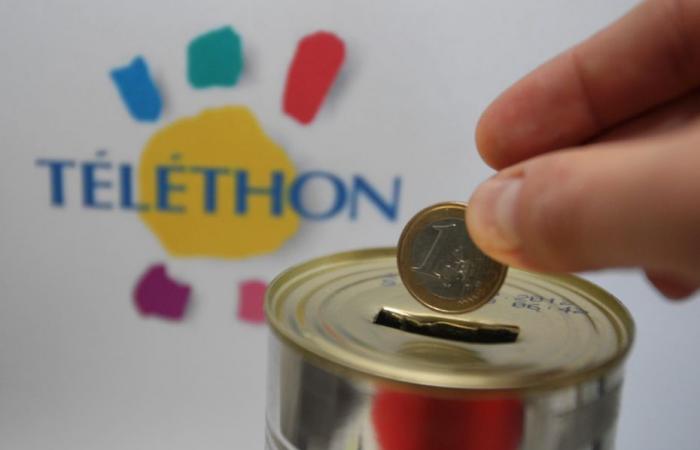
Until November 30, as part of the Telethon, it is possible to make a donation for medical research. Bryan has Duchenne muscular dystrophy. He tells us about his journey, sometimes strewn with pitfalls, and his daily life today.
The essentials of the day: our exclusive selection
Every day, our editorial team reserves the best regional news for you. A selection just for you, to stay in touch with your regions.
France Télévisions uses your email address to send you the newsletter “Today’s essentials: our exclusive selection”. You can unsubscribe at any time via the link at the bottom of this newsletter. Our privacy policy
Thanks to the mobilization of the AFM-Téléthon and France Handicap associations and to spectacular progress, Bryan, suffering from Duchenne muscular dystrophy, can today live “normally”. However, he has had a journey strewn with pitfalls since a young age. A few days before the 2021 Telethon, he testifies.
“It is the best known of rare diseases,” smiled the 25-year-old young man. Originally from the small village of Saulces-Monclin, in the Ardennes, Bryan was diagnosed at the age of 8. “When I was little, some signs appeared, perpetual falls, my knees giving out, he says. I walked on tiptoe, I had a hollow in my back.”. His parents wonder. “At first we said to ourselves that it might be due to growth.” But he was diagnosed immediately.
The doctor explained to us that our lives will never be normal again
Bryan, suffering from Duchenne muscular dystrophy
He first sees a pediatrician, then Bryan is redirected to the American hospital in Reims. As if it had happened yesterday, he says: “The doctor told me to walk back and forth in a corridor, straight away, he knew what I had. Then, we went to his office. The doctor explained to us that our lives will never be normal again, that It’s going to be very hard. He put a name to my illness.”. He continues: “I never told myself that a simple walk down a hallway and back would change my life. It’s true that it’s something”. They are directly put in touch with AFM-Téléthon.
When the diagnosis was announced, it was the final straw for those close to him. “My parents took it badly. They were told that their child would never be the same again. My father fell on his head and my mother blamed herself because she was the one who passed on the gene to me.” Bryan explains. The family must therefore adapt to Bryan’s new situation. “The house was not designed to accommodate a wheelchair. So inside I had a manual chair and outside I had an outdoor chair”.
Bryan was diagnosed with Duchenne muscular dystrophy when he was 8 years old.
•
© DR
It was only at the age of 10 that the boy understood what was happening to him. “I was mad at the whole world. I saw my friends playing football, but I couldn’t. I ran out of steam so quickly”he remembers. When he was 11, Bryan got his first chair. “At school, I was well surrounded. Everyone was kind to me.” In high school, he had back surgery, “it cut me off from school, from my friends”, regrets the young man, who is today an industrial designer.
Today, Bryan lives in Reims. “It’s been three years since I left home. I told myself that it was possible, that there were solutions. I wanted my own home, to live independently. Even if that didn’t work out. It wasn’t easy, I did it.”. If he receives daily help from home helpers, Bryan learns to “live, go out, party… I live like a normal person after all”.
On November 29, 2024, he will speak at the Téléthon Gaming, in Évry (Ile-de-France). “We are going to talk about the adaptation of video games for people with disabilities, about illness among siblings,” explains the industrial designer. The objective of this event: to collect donations to accelerate research and change the lives of people suffering from rare diseases. An experience that he sees as enriching.





